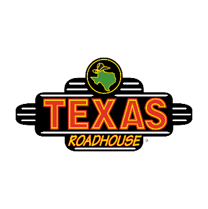5 STOCKS 4 LIFE
Reading time: approx. 6min
INTRODUCTION
A while ago, I came across an interesting thought experiment in an article: "What 5 stocks would you buy right now if you knew you had to hold them for the rest of your life and you weren't allowed to buy any other stocks?"
In the age of €1 order fees and the ability to trade shares virtually around the clock on your smartphone, this is of course not a realistic scenario, but the question was so interesting for me that I thought about which 5 shares I would buy.
I quickly decided on my 5 stocks. I currently hold all five in my portfolio. Similarities between the 5 stocks I had chosen quickly became apparent:
- mostly platform business model or platform-like
- at least one major and very long-term growth trend intact
- Consistent growth in sales and profits
- high ROCE
- low debt
The current valuation level deliberately played no role at all in my decision, as these are, after all, shares that I want to hold for the rest of my life and my investment horizon is therefore at a maximum. In order to be able to benchmark my decision, I decided to set up my own securities account on Getquin and placed these shares in the securities account at €100,000 each. The shares were then entered into the securities account on May 31.
MY 5 SHARES FOR LIFE
1) Visa $V (+1,22 %)
Visa is a leader in digital payments, enabling secure and fast transactions worldwide through its extensive network of payment cards and solutions. Almost everyone here has probably paid with a Visa card at least once in their life.
Business model highlights:
- Duopoly with Mastercard $MA (+0,88 %) in the area of payment cards
- Platform business model
- intact growth trend of cashless/digital payments
- No direct credit default risk, as the issuing banks bear the credit default risk of the users
Highlights Key financial figures:
- EBIT margin over 65%
- ROCE permanently above 30%
- Virtually debt-free
Biggest competition:
2) Costco $COST (+3,88 %)
Anyone familiar with my previous posts will know that I am 100% convinced by Costco. Costco is a retailer from the USA, but it sets itself apart from traditional retailers with its "retail as a service" business model. In order to shop in one of Costco's many department stores, you first have to take out an annual subscription.
Highlights of the business model:
- Subscription business model ("Retail as a Service")
- Large existing physical network of department stores
- High customer loyalty through subscription and low prices
Highlights Key financial figures:
- very consistent sales, profit and FCF growth
- ROCE consistently above 23
- debt-free
Largest competitor:
3) Microsoft $MSFT (+0,15 %)
Similar to Visa, Microsoft probably needs no further introduction to know what an excellent company we are dealing with here. Microsoft earns its money with software subscriptions, cloud services (Azure) and gaming (Xbox), among other things. Everyone is probably familiar with the Windows operating system and the Office 365 productivity suite.
Highlights of the business model:
- a large proportion of sales are recurring and subscription-based
- High customer loyalty thanks to platform business model with Windows and Office 365
- Cloud growth trend is excellently served by Azure;
- the cloud market itself is an oligopoly with high barriers to switching providers
- Very well positioned in the field of AI through cooperation with OpenAI
Highlights Key financial figures:
- EBIT margin consistently above 40%
- ROCE of almost 30%
- Almost debt-free
Largest competitors:
4) Chipotle $CMG (+1,99 %)
Chipotle Mexican Grill is a fast food chain that specializes in the preparation of Mexican dishes. A special focus is placed on comparatively healthy and fresh ingredients.
Business model highlights:
- Clear focus on a difficult but previously underrepresented area of fast food
- No franchise business model and therefore full control over the restaurants
- Long-term trends towards healthier and faster food are served
- not active in the highly competitive low-cost fast food sector
Highlights Key financial figures:
- Increasing profitability
- rising ROCE of now over 22%
- Low debt
Largest competitor:
5.) Philip Morris International $PM (+1,85 %)
Philip Morris International is one of the largest tobacco companies in the world and is the spin-off of the ex-USA business of $MO. In recent years there has been a clear focus on new less harmful products such as IQOS.
Business model highlights:
- Long-term growth trend for the IQOS platform developed in-house and nicotine pouches
- Oligopoly in the area of classic tobacco products
- benefits most from the trend in industrialized countries to increasingly regulate traditional smoking
- huge growth opportunity through market entry of the IQOS platform in the USA is imminent
Highlights Key financial figures:
- EBIT margin of over 35
- ROCE of over 30%
Lowlights Key financial figures:
- High level of debt due to investments in recent years
- Currently almost no sales and profit growth
Largest competitors:
SUMMARY
At the time of entry into the portfolio, the portfolio consisted of approximately 40% information technology (Visa, Microsoft), 40% consumer staples (Costco, Chipotle) and 20% non-cyclical consumer staples (Philip Morris). All 5 stocks are formally US companies, with Philip Morris currently generating 100% of its sales outside the US. Microsoft and Visa also generate large parts of their sales internationally. However, it is also clear that with 5 stocks, we cannot expect an overly broad diversification.
Which 5 stocks would be your stocks for life and why? Feel free to write your own post with reasons under the hashtag #5stocks4life. To spice things up a bit, I would like to nominate the true ETF pope @Simpson and the dividend king @GoDividend to present your 5 Stocks 4 Life with reasons.
Stay tuned,
Your Michael Scott
#5stocks4life













